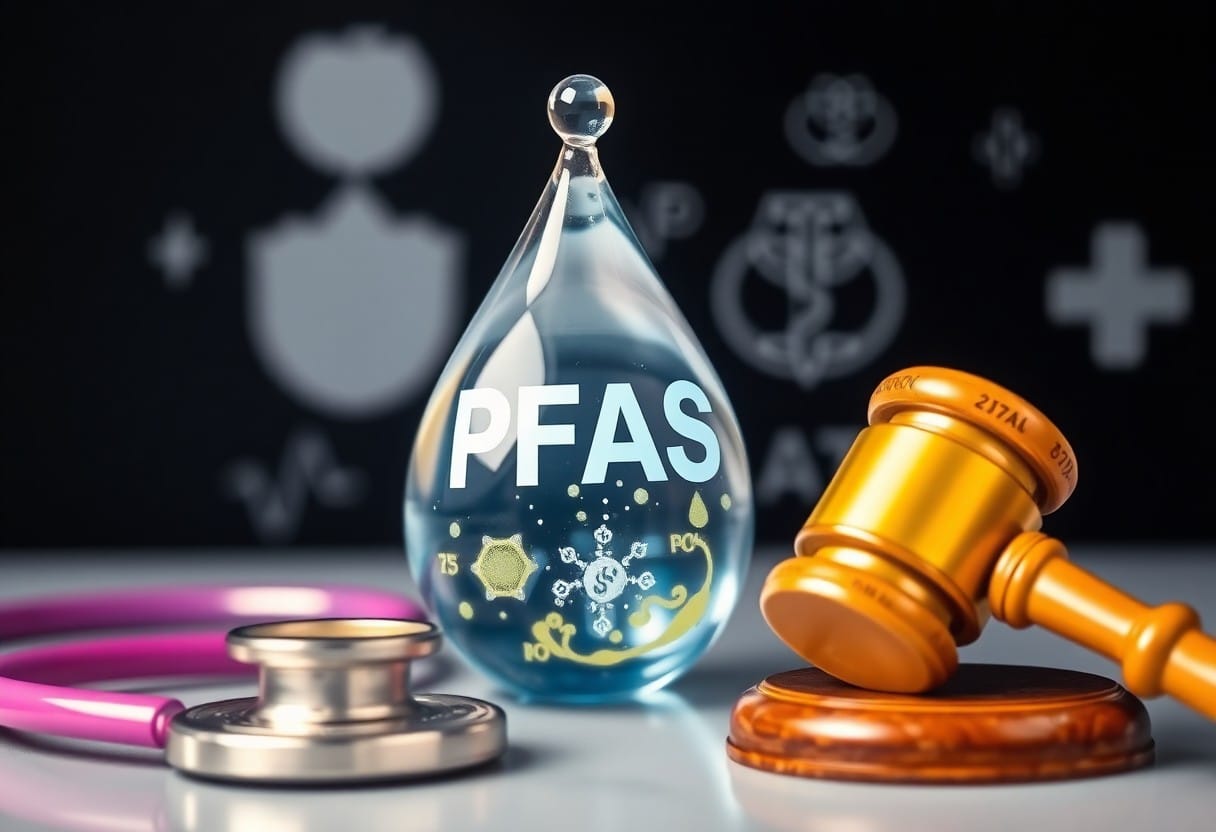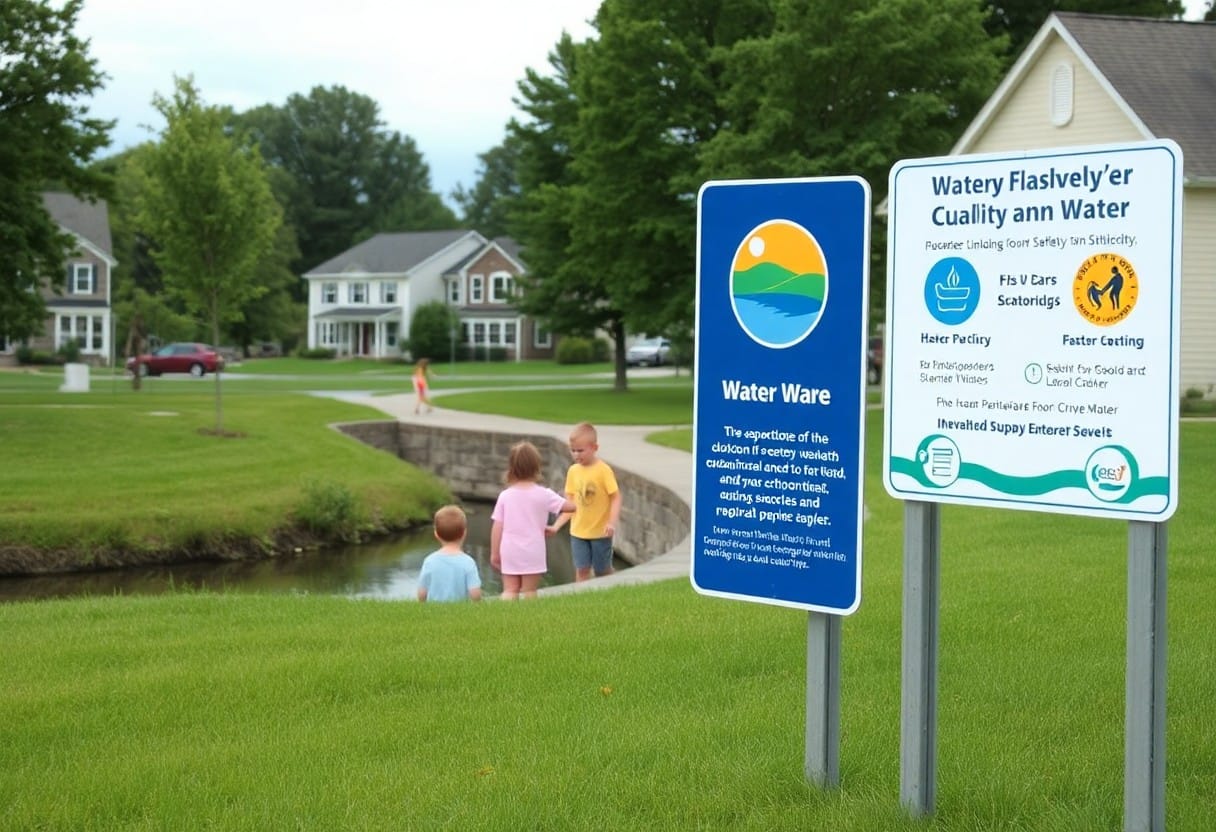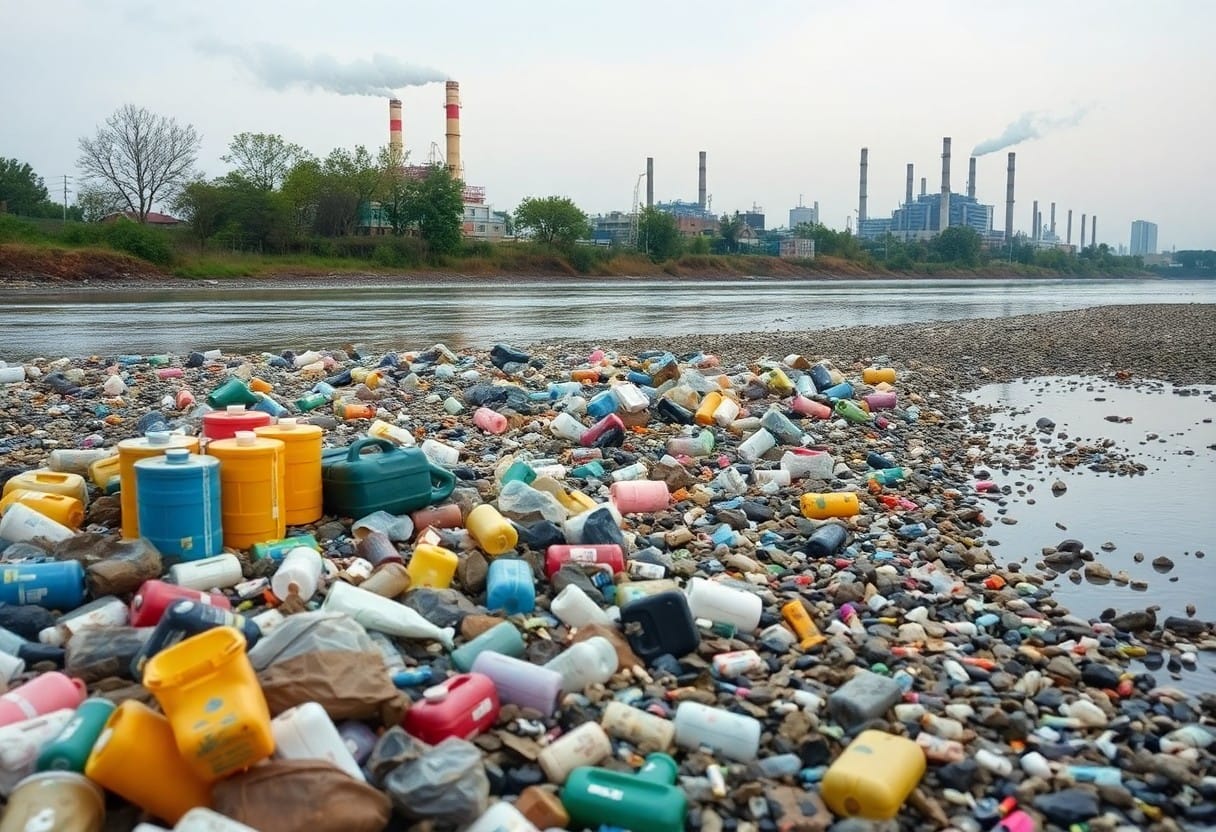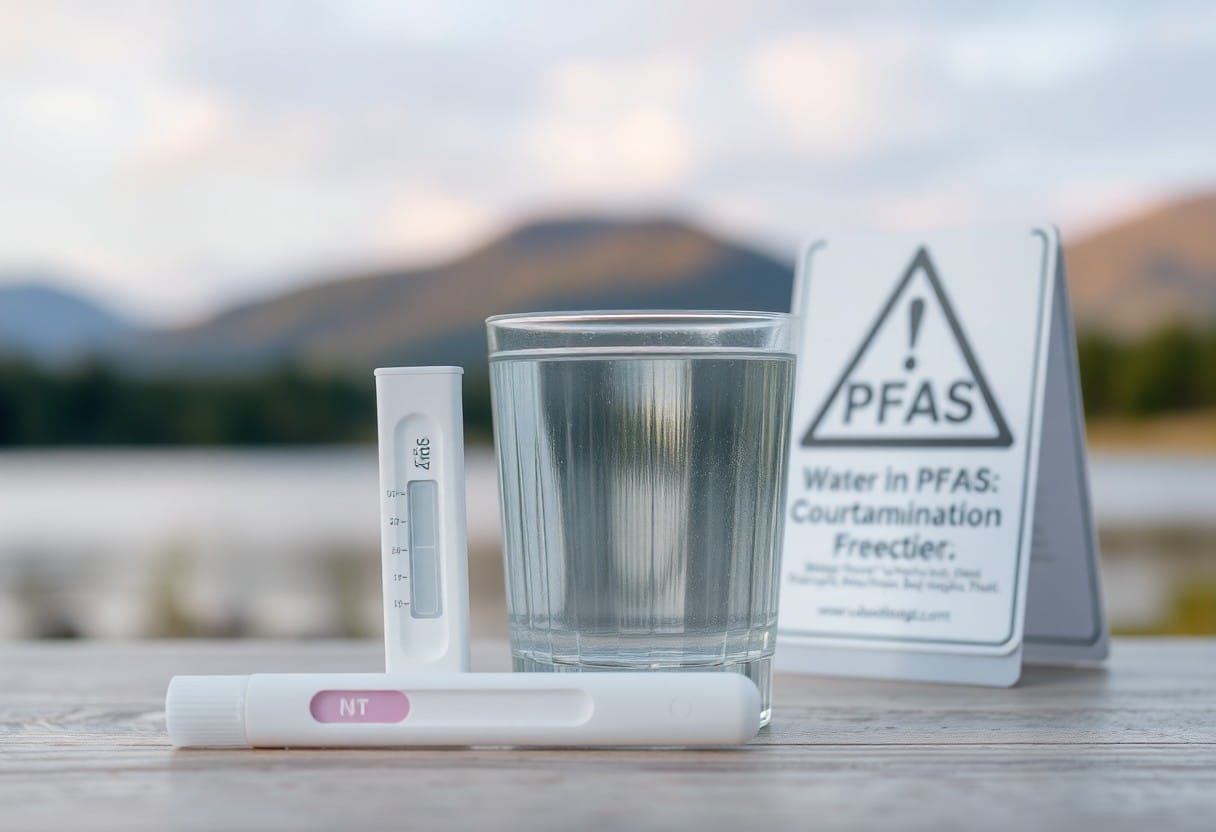Pregnancy is a time of profound transformation and anticipation, but it also comes with responsibilities, including being informed about environmental factors that can impact both you and your baby. One of the major concerns you should be aware of is PFAS chemicals, often referred to as “forever chemicals,” found in numerous consumer products and linked to adverse health effects. Studies suggest that exposure to these substances during pregnancy may affect fetal development and lead to complications. Understanding the risks and taking proactive steps can help ensure a healthier pregnancy and outcome for your child.
Understanding PFAS Chemicals
To navigate the complexities of PFAS chemicals, it’s crucial to understand their origins, impact, and prevalence. Known as “forever chemicals,” PFAS (per- and polyfluoroalkyl substances) are synthetic compounds manufactured since the 1940s, primarily used for their water- and grease-repellent properties. They are found in various consumer products, industrial applications, and even contamination in drinking water, raising health concerns, especially for pregnant individuals.
What Are PFAS?
With more than 4,700 types identified, PFAS are a group of man-made chemicals that have been extensively used in various industries due to their ability to withstand heat, oil, and water. These properties make them popular in products like non-stick cookware, water-repellent clothing, and food packaging. However, their durability also means they persist in the environment and human body for extended periods, raising alarms about their long-term health effects.
Sources of PFAS Exposure
Behind the ubiquitous nature of PFAS lies an array of potential sources that you may encounter daily. These chemicals can be present in food packaging, non-stick cookware, stain-resistant treatments for textiles, and even certain firefighting foams. Additionally, drinking water contamination, often linked to industrial runoff, is a significant concern, especially in areas near manufacturing facilities.
For instance, you might unknowingly consume PFAS through food packaged in materials treated with these substances or wear clothing that has been treated for water resistance. Even your daily coffee from a takeout shop may contain PFAS-laden packaging. Additionally, if you reside near a manufacturing site, you could be exposed to PFAS in your drinking water or local environment, heightening the risk for you and your unborn child. The widespread presence of PFAS highlights the importance of being aware of potential exposure sources to protect your health during pregnancy.
Impact of PFAS on Pregnancy
Any expectant mother should be aware that exposure to PFAS (per- and polyfluoroalkyl substances) during pregnancy can have significant implications for both maternal and fetal health. Research indicates that these chemicals are linked to various adverse outcomes, including complications in pregnancy and developmental issues in the fetus. Safeguarding your health and your baby’s begins with understanding the potential impact of these substances.
Effects on Fetal Development
Among the various concerns surrounding PFAS exposure, potential effects on fetal development include low birth weight, premature birth, and developmental delays. Studies have shown that PFAS can cross the placenta, potentially affecting critical growth stages and leading to long-term developmental problems for your child.
Potential Risks to Maternal Health
After becoming pregnant, your body undergoes numerous changes, and exposure to PFAS may further complicate your health. Experts have linked PFAS to an increased risk of hypertension and preeclampsia during pregnancy, which can pose serious health threats to both you and your baby.
Understanding the implications of PFAS on maternal health is vital for you as an expectant mother. Pregnant women exposed to PFAS may experience heightened risks of adverse conditions, such as high blood pressure and preeclampsia, which can complicate the pregnancy process. These conditions not only elevate the risk of serious complications during pregnancy but can also impact long-term health for both you and your child; thus, it becomes necessary to take proactive steps to limit exposure to these harmful chemicals.

PFAS Testing and Regulations
You may be wondering how PFAS chemicals are monitored and regulated to protect your health during pregnancy. While there are growing concerns surrounding PFAS exposure, testing and regulations vary widely across states and at the federal level. Understanding these guidelines will empower you to make informed choices about your environment and your baby’s health.
Current Guidelines for Expectant Mothers
Beside staying informed about PFAS, current guidelines recommend that expectant mothers limit exposure to these chemicals when possible. It’s advisable to avoid products known to contain PFAS, such as certain non-stick cookware, water-repellent fabrics, and some personal care items. Additionally, drinking water should be tested for PFAS contamination, especially if you live near industrial sites.
State and Federal Regulations
Any regulations concerning PFAS are still evolving as more studies reveal the health impacts of these chemicals. While some states have enacted stricter limits on PFAS in drinking water and food packaging, the federal government is also beginning to draft standards. This inconsistency can create confusion about safety and exposure levels for expectant mothers.
Testing for PFAS is becoming more common, with many states adopting regulations that establish safe drinking water standards for these chemicals. Federal regulations are under review, aiming to address the growing evidence of health risks associated with PFAS. The Environmental Protection Agency (EPA) has initiated steps to implement national guidelines, but notable discrepancies still exist at the state level. Being aware of your local regulations can help you take pertinent actions to minimize your exposure during pregnancy. It’s recommended to stay connected with local health department advisories and participate in any community water testing initiatives available to safeguard your health and that of your unborn child.
Reducing Exposure to PFAS
After understanding the risks associated with PFAS chemicals, it’s vital to take steps to reduce your exposure. Simple changes in your daily routine can help minimize contact with these harmful substances. Opt for PFAS-free products and be mindful of the food packaging used, as many takeout containers and microwave popcorn bags contain PFAS. Additionally, filtering your drinking water can further protect you and your baby.
Safe Practices for Pregnant Women
Above all, maintaining a healthy environment is key. Focus on using natural cleaning products, and avoid non-stick cookware that may contain PFAS. Choose organic foods whenever possible to decrease the chance of chemical contamination. Regularly wash fruits and vegetables, and limit fast food consumption, as these can be high in PFAS.
Resources for Reducing PFAS in Daily Life
Women seeking to lower PFAS levels in their homes can find various resources available online. Consider utilizing guidelines from organizations such as the Environmental Protection Agency (EPA) or the Health and Environment Alliance, which offer practical tips and lists of PFAS-free products. Many non-profit groups and local health departments also provide support and educational materials designed specifically for expectant mothers to navigate their options.
Resources on reducing PFAS exposure are vital for you to protect your health and that of your child. You can take advantage of websites dedicated to explaining safe product alternatives and community programs that help test for PFAS contamination. Engaging in local workshops or forums on environmental health can also provide you with firsthand experiences and effective strategies. Being informed and proactive in your choices is vital to ensuring a safer environment during pregnancy.
Ongoing Research and Future Directions
Not only is ongoing research focused on understanding the effects of PFAS chemicals on pregnancy, but it also aims to develop strategies for reducing exposure and improving health outcomes for you and your baby. Scientists are investigating new ways to analyze PFAS levels in the body and how these chemicals influence maternal and fetal health. Future studies will provide important insights into safely navigating your pregnancy amidst rising concerns surrounding PFAS contamination.
Studies on PFAS and Pregnancy Outcomes
Among the emerging findings, studies have identified potential links between PFAS exposure during pregnancy and adverse health outcomes, such as low birth weight and preterm birth. Researchers are examining various factors, including the timing and level of exposure, to better understand how these chemicals may affect your health and that of your unborn child. Ongoing investigations aim to clarify these associations to empower you with more comprehensive knowledge during this critical time.
Emerging Technologies for Detection and Removal
To combat the prevalence of PFAS, innovative technologies are being developed for their detection and removal. These advancements offer you peace of mind by enabling more effective monitoring and mitigation of PFAS contamination in your environment.
In addition, researchers are focusing on cutting-edge methods such as advanced filtration systems and adsorption techniques to remove PFAS from drinking water and soil. These technologies aim to enhance your safety by significantly reducing exposure risks. Meanwhile, scientists are working on sensitive detection methods that can identify even trace amounts of PFAS in various environments, helping you be better informed about potential hazards. As these technologies evolve, they will serve as vital tools for ensuring cleaner water and safer living conditions during your pregnancy.
Support and Resources for Expecting Mothers
Once again, it’s imperative to prioritize your health and well-being during pregnancy. Numerous resources and support systems are available to help you navigate concerns related to PFAS chemicals. From healthcare professionals to community organizations, you can find guidance, information, and advocacy to assist you in making informed decisions for you and your baby. Ensuring you have access to meaningful support can empower you to take control of your health during this significant time in your life.
Finding Healthcare Guidance
The journey to a healthy pregnancy starts with seeking reliable healthcare guidance. Consult with your healthcare provider regarding PFAS exposure and its potential effects on your pregnancy. They can offer personalized recommendations, conduct necessary tests, and connect you with specialists if needed, ensuring that you have the best possible care tailored to your situation.
Community and Advocacy Resources
Advocacy groups and community resources can provide valuable support as you address PFAS-related concerns. Many organizations focus on raising awareness, promoting research, and offering assistance to expectant mothers facing potential chemical exposure. Connecting with these groups can help you access imperative information, share experiences, and find a community that understands your challenges.
Resources available to you include local and national advocacy organizations that focus on environmental health and maternal safety. These groups often provide educational materials, host workshops, and connect you with others who have similar experiences. They work tirelessly to inform the public about the risks of PFAS and advocate for safer policies. By engaging with these resources, you can empower yourself with knowledge and join a community dedicated to creating a healthier environment for you and your family.
To wrap up
Considering all points, understanding PFAS chemicals and their potential effects on pregnancy is imperative for you as an expectant mother. These substances are commonly found in various products and can impact both your health and your baby’s development. By staying informed about sources of exposure, engaging with healthcare professionals, and making conscious choices about your environment, you can better protect yourself and your unborn child from potential risks associated with PFAS. Your proactive approach today can lead to a healthier tomorrow for both you and your baby.





















